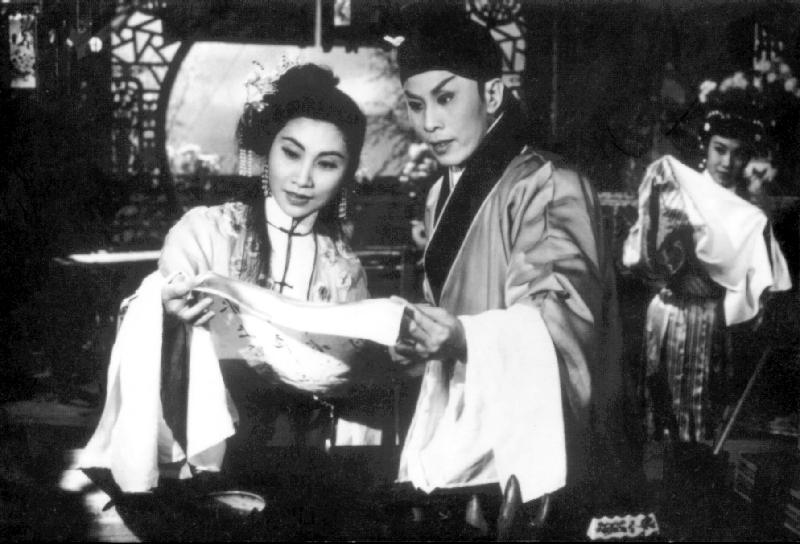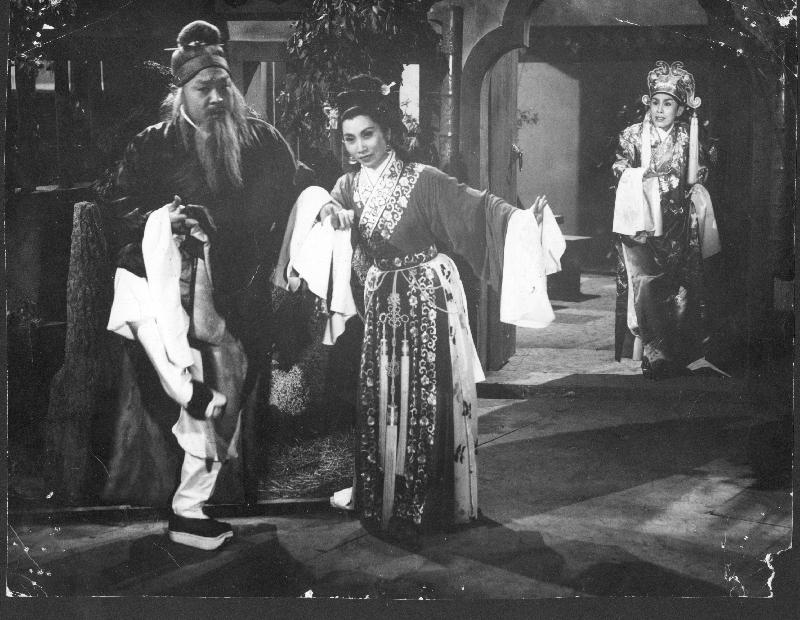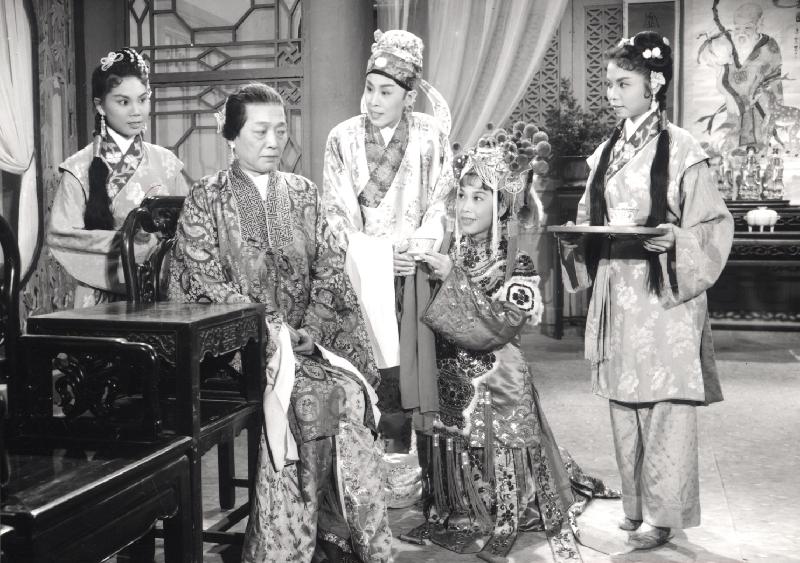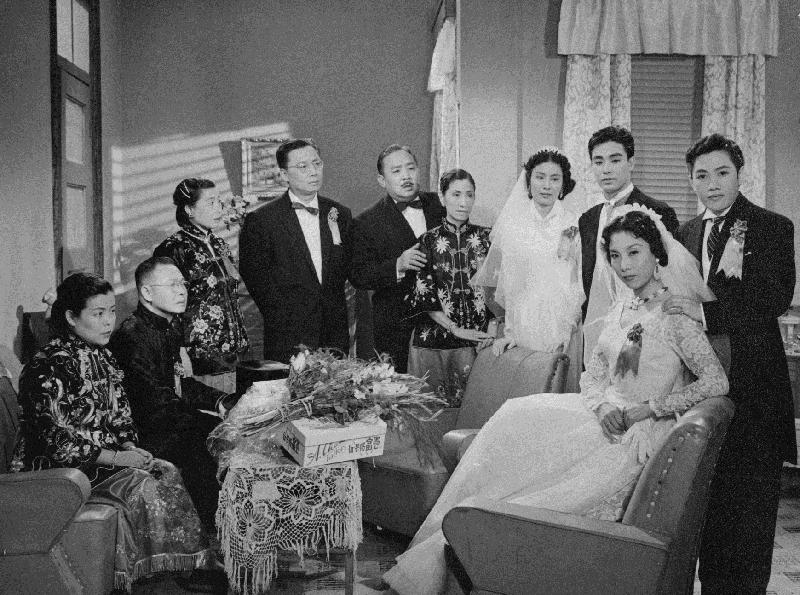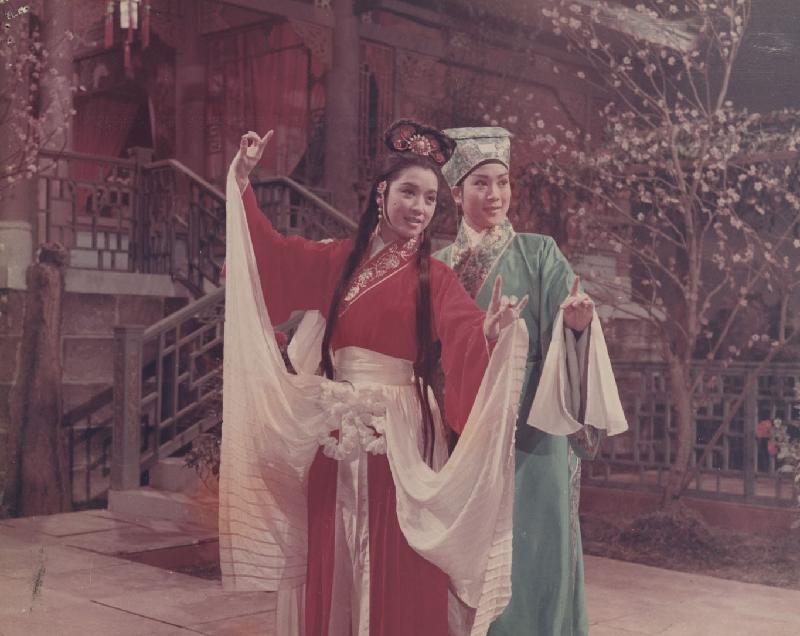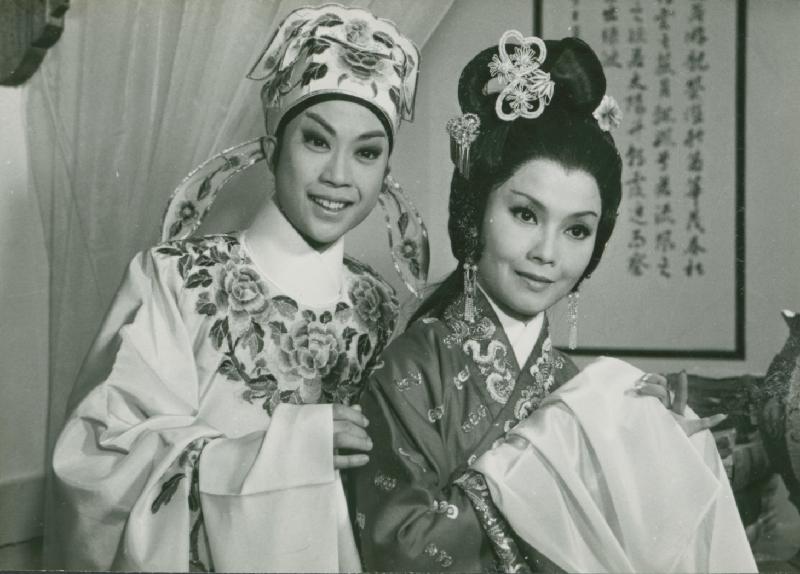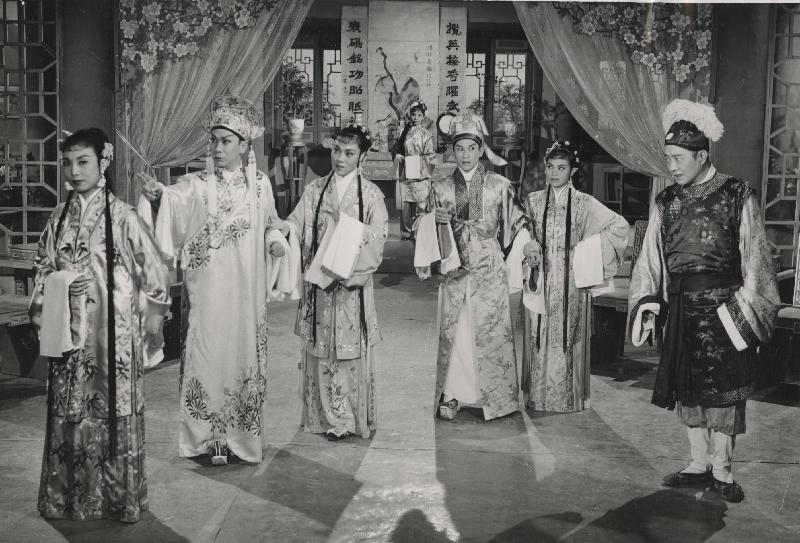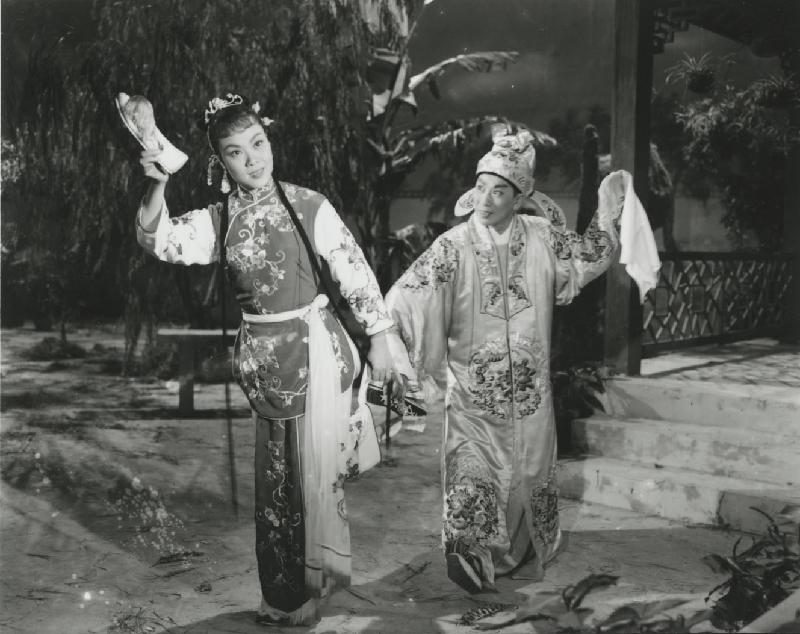HK Film Archive to pay tribute to Tong Tik-sang on 100th anniversary of his birth (with photos)
******************************************************************************************
In addition, a seminar entitled "The Cinematic and Operatic Art of Tong Tik-sang" will be held on June 18, Tong's birthday, at 4.30pm at the HKFA Cinema, at which professors Lau Yin-ping, Yu Siu-wah and Chan Sau-yan will review Tong's creative career and achievements with the audience. Apart from the seminar, a number of screenings will also be followed by post-screening talks, all conducted in Cantonese with free admission.
Born in 1917 as Tong Kong-nin, Tong Tik-sang (1917-1959) was a playwrighting genius of Cantonese opera and Hong Kong cinema. In 1937, he came to Hong Kong to join the Kok Sin Sing Opera Troupe as a copyist, while also studying libretto writing from famed playwrights Fung Chi-fun and Mak Siu-ha. He wrote his first Cantonese opera work in 1938. From the 1940s Tong wrote prolifically for both film and stage, catapulting his fame to new heights. Penning over 400 operas during his career, many of Tong's works are recognised as gems of Cantonese opera, of which more than 70 have become screen adaptations. Tong's timeless masterpieces continue to impress and are a significant part of the cultural heritage.
"Traces of Snow in Tong's Songs" is the main theme of the retrospective, with films featuring performances by Yam Kim-fai and Pak Suet-sin, who worked closely with Tong. "Fairy In Drawing" (1957) is the signature romantic story played by the duo, in which lucid and lively music and lyrics by Tong breathes life into the Chinese folklore. "The Naughty Couple" (1960), which touches on life and death in a light-hearted way, is the last film scripted by Tong before his passing. The music written by Tong for "Three Trials of the Number One Scholar's Wife" (1958) is universally appealing, and combines well with superb performances by Yam and Pak for the delight of audiences. In the melodrama "Madam Wan" (1960), good emerges from evil for a happy ending, thus following the classic manner of storytelling in most Chinese operas. Scripted by Tong, "Triennial Mourning on the Bridge" (1959) meticulously portrays the brotherhood of Leung Sing-po and Yam as well as their love triangle with Pak. Based on Tong's original opera, "As Luck Will Have It" (1955) depicts the thoughts of ordinary folk in the vernacular and delivers side-splitting humour.
In "A Respectable Tutor" (1959) Pak bravely cuts her ties with her father in pursuit of love. Lee Tit's directorship, Tong's exquisite lyrics and Yam and Pak's flawless performances shine through in the Cantonese opera film classic "The Legend of Purple Hairpin" (1959). Unlike Tong’s recurring romances, the story structure of "Butterfly and Red Pear Blossom" (1959) is original, and the lovers do not meet until the final scene. "A Poor Girl" (1959) follows dutiful concubine Pak, who upholds an unquenchable desire for truth and justice, even though she has been framed for murdering her own son. Compared with its original, "The Lion's Roar" (1959) has less passages composed of traditional "bongwong" melodies. The film also shows the tenderness of Yuk-ngor, who, on occasions, is as fierce as a lion towards her husband. "The Lotus's Story" (1959) features Fu-yong, poet laureate of Jiangnan and a courageous woman ahead of her time, in which the sequence 'Waiting for the Full Moon at the West Chamber' is a great example of the romantic scenes played by Yam and Pak.
The theme "Old Script Revisited" focuses on film adaptations of Tong's period repertoires placed in a more contemporary context. "The Swallows' Return" (1953) and "Swallows Come Home" (1958) are based on the same Cantonese opera with the former a contemporary version and the latter a period work. Fong Yim-fun stars in both films, proving herself equally adept at both eras. Adapted from a period to a contemporary setting, "Wealth Gone Like a Dream" (1952) oozes human warmth and compassion, making a departure from Tong's signature romantic libretti. The film marked the final on-screen appearance of Liu Hap-wai, known as "the head of the four comic masters". Tong took reference from Hollywood film noir to direct "Mysterious Murder" (Part One/Part Two) (1951) with a modern spin, in which the music is a hybrid of Cantonese opera music and Western orchestral music, highlighting a new attempt at adapting old scripts. Starring Tang Bik-wan and Leung Mo-sheung - two of the greatest comediennes excelling in cross-dressing roles - "Tonight and Every Night" (1956) provides a feast of laughter for their farcical situations. "Return on a Snowy Night" (1957) centres on the warlord-ridden Early Republic era to tell a cautionary tale advocating freedom of love and marriage.
The theme "Lovesick Pairs" presents some eternal stories of star-crossed lovers in Cantonese operatic gems. Adapted from Tong's posthumous opera for the Sin Fung Ming Opera Troupe, "Love in the Red Chamber" (1968) follows the romance between a scholar (Connie Chan Po-chu) and his lover (Nam Hung) being stymied by the murderously jealous prime mister (Leung Sing-po). Li Tit directed "The Legend of Purple Hairpin” (1977), again with full cinematic treatment, and this time featuring the young apprentices of Yam Kim-fai and Pak Suet-sin, namely Lung Kim Sung and Mui Suet-si, in which the signature sequence is masterfully crafted with elegant mise-en-scène and evolving atmospheres. "Regret from the Spring Lantern and Feather Fan" (1959) is the only remaining on-screen version of its original. The singing of Yam and Fong Yim-fun in the film mirrors the chain of obstacles often encountered in the way of love. Highlighting a slick and canny prince in distress, in "Happy Wedding" (1959) Yam pairs up with Pak, the mischievous princess, and their interactions amuse audiences.
The theme "Whodunits" features films about revealing culprits and righting wrongs, with Tong incorporating elements of mystery and suspense from the West into traditional Chinese stories. "The Swallow's Message" (1959) is notable for its intriguing plot twists, in which Tang Bik-wan is accused of having a secret affair with Law Kim-long and even of killing her husband. In "Red Shoes Solves the Mystery Case" (1959), Poon Yat On kills his own wife to elope with Fung Wong Nui, and lays down a ruse to suggest Fung has been the victim. In "A Smile of Woe" (1962), the heroine (Fung, again) is wrongly convicted and gives birth to a son whilst in jail. Her son grows up and vows to exonerate his mother from the monstrous injustice. "Gold-braided Fan" (1959) features Yam Kim-fai and Pak Suet-sin's love story with twists and turns, in which Pak's father annuls their matrimony and Pak is involved in a case of theft and murder. Fortunately she is vindicated and gets to reunite with Yam.
All films are in Cantonese and Chinese subtitles are only available for some lyrics only. The programme is guest-curated by Professor Chan Sau-yan with the assistance of Yuen Tsz-ying.
Thirteen films of the programme will be screened in the "Morning Matinee" series, which is held at 11am on Fridays with tickets priced at $30; other screenings are priced at $45. All tickets are now available at URBTIX (www.urbtix.hk). For credit card telephone bookings, please call 2111 5999. For programme details, please visit www.lcsd.gov.hk/ce/CulturalService/HKFA/en_US/web/hkfa/programmesandexhibitions/cotf/index.html, or call 2739 2139.
Ends/Tuesday, April 18, 2017
Issued at HKT 15:30
Issued at HKT 15:30
NNNN





